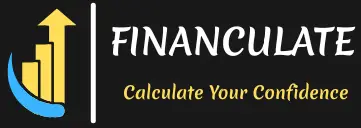Navigating mortgage settlements can feel like a complex puzzle. An escrow waiver could simplify your journey. By opting for an escrow waiver, you manage property taxes and homeowners insurance independently, without involving an escrow account with your mortgage. Let’s delve into the eligibility criteria, benefits, and risks that come with using escrow waivers.
Understanding Escrow Waivers
Understanding Escrow Waivers can simplify your journey as a homeowner. Opting for an escrow waiver allows you to manage property taxes and homeowners insurance independently, thus eliminating the need for an escrow account with your mortgage. This article explores the eligibility criteria, benefits, and potential risks associated with escrow waivers.
An escrow waiver allows you to skip the traditional escrow account, which typically manages property tax and insurance payments. Lenders usually insist on this account to ensure property-related costs are covered alongside mortgage installments. By choosing an escrow waiver, you assume responsibility for handling these payments yourself.
Eligibility for an Escrow Waiver
Not everyone is eligible for an escrow waiver, as it relies on several factors. Lenders usually consider the following:
- Loan-to-Value Ratio: A lower loan-to-value (LTV) ratio often means less risk to the lender, increasing your approval chances. Borrowers generally need to have significant equity in their homes, typically around 20% or more.
- Credit Score: A strong credit score showcases reliability, making you a more favorable candidate for an escrow waiver. Lenders prefer borrowers with excellent credit histories who manage regular payment obligations efficiently.
- Payment History: Demonstrating consistent and timely mortgage payments is a pivotal factor.
- Home Value: Steady or increasing property value can positively influence a lender’s decision.
- Loan Type: The type of loan—whether conventional or government-backed—might influence your eligibility, as some loans do not permit waivers.
Benefits of an Escrow Waiver
Choosing an escrow waiver offers several benefits:
- Increased Control Over Payments: Gain flexibility by deciding how and when to pay property taxes and insurance premiums.
- Improved Cash Flow Management: Freed from escrow accounts, you don’t need to factor monthly installments into your mortgage, potentially unlocking cash flow for other expenditures.
- Earning on Insurance and Tax Payments: Instead of sitting idle in an escrow account, funds remain under your control, allowing potential investments or earning interest.
- Greater Transparency: Direct oversight of tax and insurance payments provides a clearer understanding of your financial commitments.
- Avoiding Escrow Fees: Some lenders charge administrative fees for escrow accounts, which you avoid with this waiver.
Potential Risks of an Escrow Waiver
Handling your payments offers independence, but it comes with risks:
- Payment Discipline Required: Managing large lump-sum payments demands budget discipline, especially for significant expenses like property taxes.
- Risk of Missed Payments: Without an escrow account ensuring automatic payment, it’s easy to forget payment deadlines, leading to penalties.
- Higher Loan Costs: Lenders might see an escrow waiver as extra risk, possibly raising mortgage interest rates or adding a one-time waiver fee.
- Financial Strain in Emergencies: Unforeseen events can create financial stress, making it harder to meet large tax or insurance payments.
Is an Escrow Waiver Suitable for You?
Deciding whether an escrow waiver is right involves considering your financial habits, risk tolerance, and income stability. If you’re capable of managing your finances wisely and appreciate control over payments, an escrow waiver can boost your financial flexibility.
Conduct thorough research and talk with your lender to understand the implications of opting for an escrow waiver in your specific situation. It offers control and could maximize financial resources, but requires a disciplined financial approach.
For both seasoned homeowners and first-time buyers, an escrow waiver offers a personalized way to manage your mortgage. Handling property taxes and insurance on your own might align with more strategic financial planning tailored to meet your goals.
Source: Finance Yahoo

